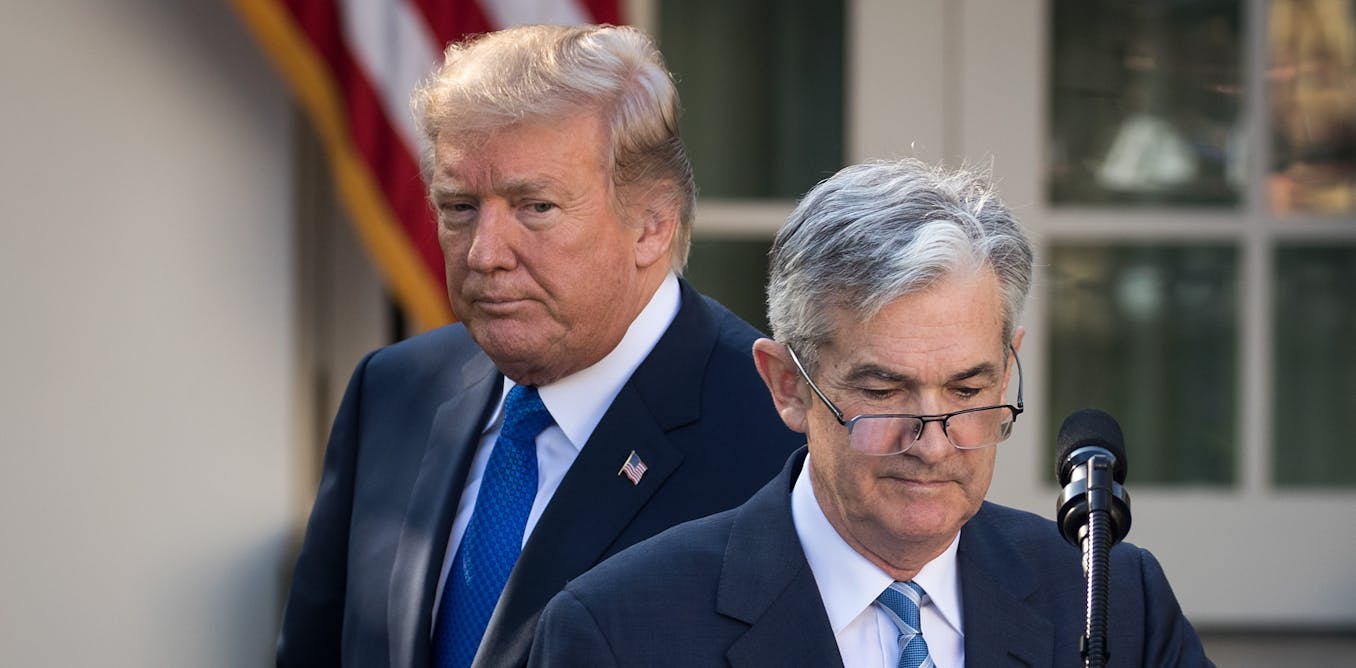Central banks are pivotal institutions in nearly every nation, wielding substantial influence over a country’s economy by managing its currency and monetary policy. This control extends to affecting growth, inflation, employment, and financial stability, which inherently grants them significant power.
Political figures, including former U.S. President Donald Trump, have shown interest in influencing these powerful entities. The ability to manipulate monetary policy can provide timely economic boosts, particularly during elections or when political popularity wanes, as noted in discussions about Trump’s desire for lower interest rates.
However, such politically motivated decisions often pose risks to a nation’s long-term economic health, potentially leading to future economic burdens. To mitigate these risks, central banks are typically granted autonomy to set interest rates independently, insulating them from political agendas.
This independence, seen as a hallmark of responsible financial governance since the early 1990s, has generally kept inflation low and stable. Countries like Switzerland and Sweden exemplify the success of this approach, maintaining stability even amidst global challenges like the pandemic.
In contrast, nations such as Lebanon and Egypt, where central bank independence is limited, have faced frequent high inflation, similar to Argentina and Turkey, where autonomy has been compromised multiple times.
Despite its advantages, central bank independence has come under threat. Over the past decade, politicians have increasingly pressured these institutions to maintain low interest rates, aiming for economic growth and voter approval. Trump’s administration, for instance, saw him criticize and demand lower rates from his appointed Federal Reserve Chair, Jerome Powell, particularly after Powell’s warnings about the inflationary potential of tariffs.
Central Bank Independence Under Scrutiny
Central banks’ ability to withstand political pressure is largely due to legal frameworks that ensure their autonomy. These laws provide lengthy tenures for leaders, focus policy on inflation control, and restrict government borrowing. Nevertheless, political interference remains a possibility if laws are altered or ignored.
Even in authoritarian regimes, legal protections have proven effective in reducing inflation and limiting central bank lending to governments. However, recent trends indicate a potential erosion of this legal independence.
Political Influence in Appointments
Globally, the appointment of central bank leaders is a political process. Heads of government often appoint central bank leaders, aligning monetary policy with political preferences. This can enhance legitimacy but also increase susceptibility to political influence.
In the U.S., while the president nominates Federal Reserve Board members, the Senate’s confirmation role serves as a check, occasionally rejecting unsuitable candidates. Despite political appointments, many central bankers remain in position beyond their appointers’ tenure, contributing to continuity in policy.
The Pursuit of Low Inflation
As of 2023, nearly all central banks prioritize low inflation, though many are also tasked with additional objectives like financial stability and employment. These dual mandates can complicate policy-making, especially in times of economic distress.
Countries are increasingly expanding central banks’ mandates beyond inflation, with 23 nations making such changes since 2000, potentially opening doors for political manipulation.
Restricting Government Borrowing
Historically, central banks were established to finance government activities, especially during wars. Presently, limiting government borrowing is crucial to maintaining price stability and preventing fiscal excesses.
Yet, the past two decades have seen nearly 40 countries relax these restrictions, with some central banks becoming potential government financiers, posing risks to inflation control.
Central Bankers as Political Targets
Politicians have increasingly targeted central banks, advocating for lower rates and criticizing policies. Central banks are often blamed for economic missteps, from failing to foresee crises to exacerbating inequalities.
Efforts to undermine central bank independence, as seen in Trump’s critiques of the Fed, risk rekindling inflationary pressures. Historical patterns show such actions tend to destabilize economies.
This article updates a piece initially published by The Conversation on June 14, 2024.






